Family Travel: How to Plan a Holiday Everyone Will Love
Family trips can be extra challenging when you have multiple age groups and areas of interest to account for. Here’s how to plan a vacation that has something for everyone.
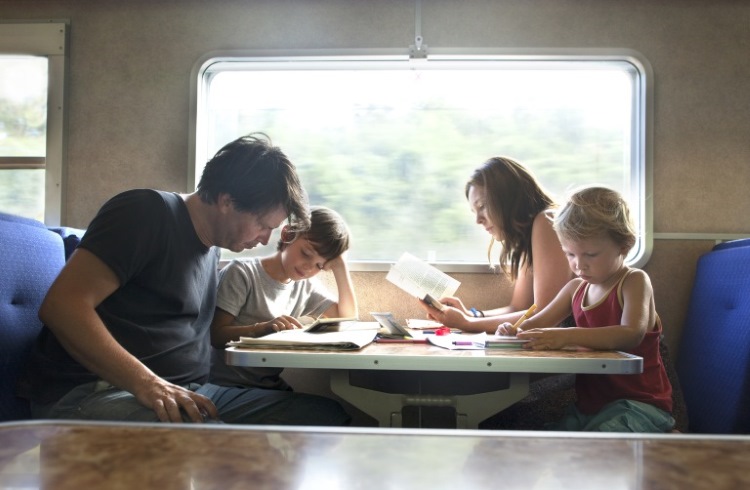 Photo © Getty Images / Photo and co
Photo © Getty Images / Photo and co
- Planning a family trip that works
- Get your kids involved via digital technology
- Planning a trip for multiple interests
- Be flexible with your travel itinerary
- Remember to pace yourselves
- How to visit museums and galleries without complaints
- Utilize rewards and incentivize good behavior
- Travel planning tips for solo parents
Planning a family trip that works
The key to a great family vacation, which ticks at least some boxes for each family member, really comes down to thorough planning and research. Where do you start?
A solid first step is to consider and list your family’s ages and interests. If you’re traveling with toddlers or babies, your mobility is more limited than if your children are teenagers. Is your group capable of an itinerary that has you moving from place to place on a regular basis, or are you better off based in one location and exploring from there?
Trying to cram too much in and overestimating the ability of children to wander for hours as visitors is a common mistake. Instead, manage expectations by creating a list of “must-dos” and “nice-tos” attractions and activities.
Get your kids involved via digital technology
Our kids are living in a visual and online world. If you really want to capture their attention and get them excited about your trip, reach for your smartphone or laptop and make friends with hashtags.
A quick search online of your chosen destination will reveal multitudes of stunning images of virtually any location in the world. These visual teasers are more appealing and more likely to speak your children’s language than the cheesy stock photos often featured in travel brochures.
When I was heading to the Greek Islands with my 10-year-old, she researched #Mykonos on Instagram and before we’d even stepped on the plane, my ballet-loving daughter couldn’t wait to discover all the pretty, whitewashed laneways, and to do a leaping split in the air in front of the town’s historic windmills.
Depending on the age of your kids, I also recommend finding an older camera or smartphone for them to use during your trip. It helps give tweens and teens a sense of responsibility and keeps them involved when sightseeing. When I took my 12-year-old son to Europe on a river cruise, he used one of my older cameras and he really engaged with studying architecture, capturing the detailed ceiling frescoes in centuries-old churches.
Planning a trip for multiple interests
Family trips often include people who are interested in different things. Try and identify some key interest areas – and not just for the kids, but for yourselves as well. If you have a foodie in the family, you’ll want to take in some fresh food or produce markets or even a cooking class; or if you have keen sports fans in your crew, seek out sports events, athletic activities, or even sporting museums with interesting memorabilia. Aim for a mix of both adult-geared and child-geared activities.
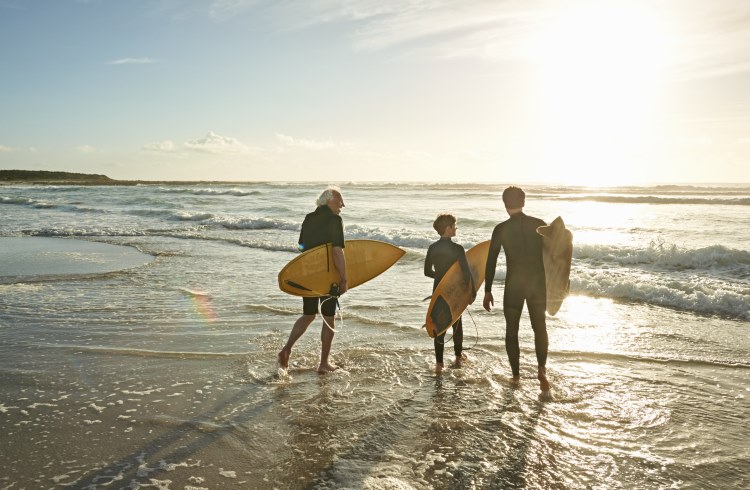
Be flexible with your travel itinerary
With all travel, but particularly family travel, flexibility is your friend. Your plans should include your willingness to abandon and adjust the plan as needed. Kids (and adults too) can get sick, suffer an injury, or be just plain exhausted when traveling. When you’re also dealing with different time zones, climates, currencies, and potentially jet lag, it’s even more important to understand that things won’t always go neatly according to schedule.
Remember, this is your opportunity to instill in your kids one of life’s most important values – resilience. In Fiji, both of my kids were in bed sick with a fever, which meant canceling day boat trips and other activities. It happens. Even if there’s disappointment, understanding that this is all part of the travel journey is imperative – as well as modeling for your kids an attitude of going with the flow and making the best of any situation.
Remember to pace yourselves
Attempting a holiday that has a relentless go-go-go schedule is a recipe for disaster. Kids, including teenagers, will tire and become bored and frustrated which will only leave you in a state of disappointment. I made this mistake when I visited Uluru, the enormous and sacred monolith in Australia’s outback Northern Territory. My youngest was only three, and I’d assumed we’d jump on the tour buses like everyone else. I had overlooked the fact that the sunrise buses departed at a very early hour, and it was only on checking in that I realized, traveling as a solo parent at the time and with three young kids all under 10, these early starts were simply not feasible.
The staff recommended that I hire a car instead, so that I could visit Uluru-Kata Tjuta National Park at my own pace and return to the hotel for lunch, avoiding the daytime heat of the Australian desert.
Remember to be realistic with your expectations and plan your days accordingly. For instance, if you have one busy day sightseeing, follow it up with a day of relaxation.
How to visit museums and galleries without complaints
Museums can exhibit anything from priceless works of art to prehistoric dinosaur fossils. There’s no need to miss out on visiting these treasure troves just because you have children in tow, but there are some ways to ensure a smoother run. Take advantage of online pre-booking functions and tourism passes, as this will help you avoid lengthy queues.
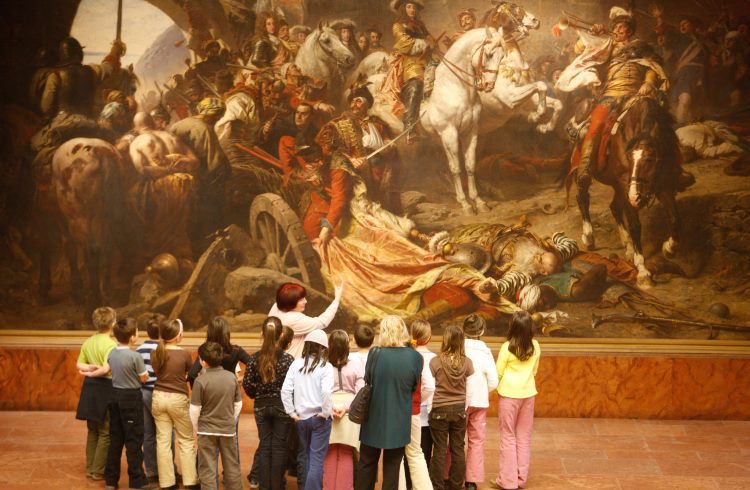
I also recommend taking advantage of self-guided tours or booking guided tours where possible. Most major exhibitions have small-group tours departing at regular intervals, and also go-at-your-own-pace, interactive tours. On a guided tour, the host is usually highly informative, and miraculously, kids are far less likely to misbehave for a gallery staff member than they are for their parents. Many guides are highly skilled in involving your kids too, even if the kids can’t yet fully understand the historical or cultural significance. When I visited the ancient island of Delos off the coast of Mykonos, our small group tour had an excellent tour guide who kept my 10-year-old daughter thoroughly enthralled.
Utilize rewards and incentivize good behavior
Adopt a positive incentive model to give your kids a framework for your holiday expectations. Incentives can be simple, eg: if you follow the instructions on this tour, you’ll get to choose a small item from the gift shop, or ice cream at the café afterward. Or maybe the “carrot” is a bigger reward up for grabs in exchange for cooperative behavior, such as a trip to a theme park (save it for the last day of the trip!); or a gift card/cash to spend how they choose on a shopping spree.
If you really want to get creative, I’ve heard of some parents that develop a sort of “family passport”. As you acquire “stamps” (ticking off attractions you want to see in a small notebook), there are rewards throughout to incentivize children to go along with the schedule.
Travel planning tips for solo parents
If you’re traveling as a solo parent, be sure to research accommodation where you can take some deserved time to yourself, while your kids are safely immersed in age-appropriate activities at a kids’ club or with a reputable babysitting service.
When I was in Fiji with my three children as a single parent, the hotel we stayed in had an excellent kids’ club (common in many Fijian resorts, as they have such a welcoming culture towards children). It meant that sometimes I could attend an activity with just one of my children while my other two were happily cared for. One morning, I went on a boat trip with my youngest to observe the colorful tropical fish. Another time, dinner was set up for us on a pontoon, and I took my eldest son with me as my “date” while my younger two were off having fun, barely noticing my absence.
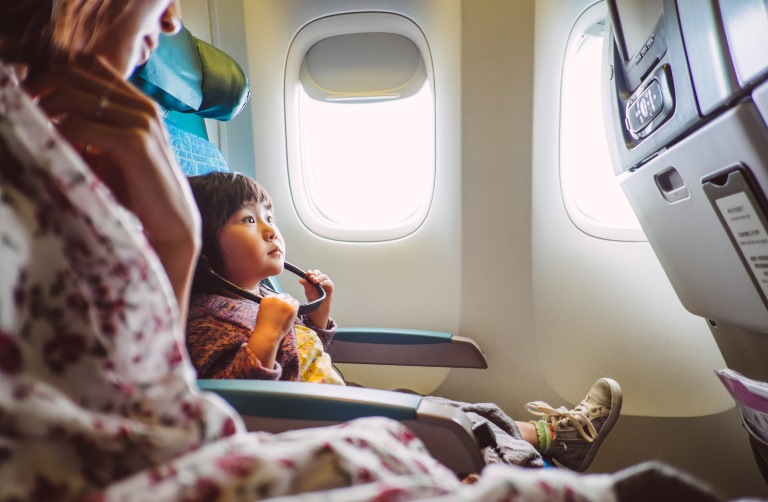
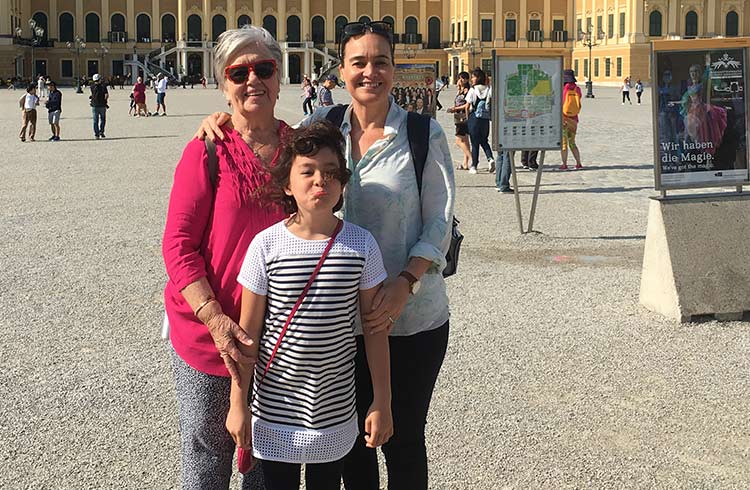

No Comments